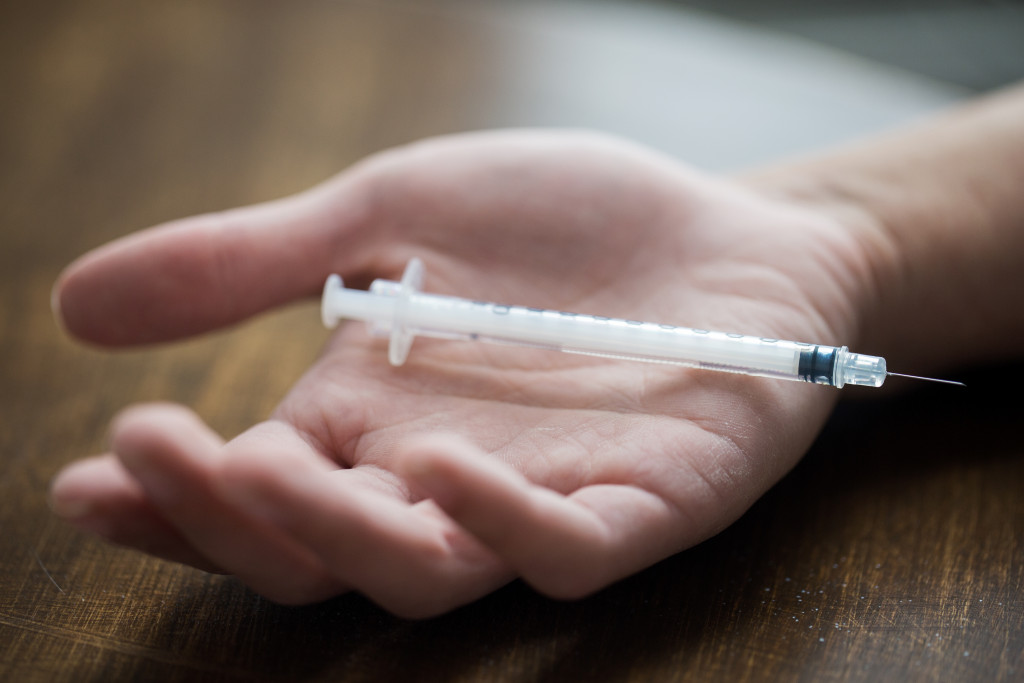• Methamphetamine is a Schedule II drug widely used since World War II.
• Long-term use can result in extreme weight loss, tooth decay, skin sores, and brain damage.
• Treatment for meth addiction must be comprehensive and tailored to the individual.
• Psychological services, medication-assisted treatment, and support groups can help individuals recover from meth addiction.
Methamphetamine is a problem in the United States. The manufacture, sale, and use of methamphetamine are all illegal. However, methamphetamine is still easily obtainable throughout the country. Here’s an exploration of the methamphetamine problem in the United States and what can be done to solve it.
The History of Methamphetamine in the United States
Methamphetamine was first synthesized in 1893 by a Japanese chemist named Nagai Nagayoshi. However, it was not used medicinally until 1919, when German chemist Ernst Schering began using it to treat allergies and bronchial disorders. In World War II, methamphetamine was given to soldiers to keep them awake and alert.
After the war, methamphetamine use became more widespread. It became famous as a diet pill and was used by truck drivers and students to stay awake for long periods. In 1970, the Controlled Substances Act classified methamphetamine as a Schedule II drug, which made it illegal to possess or sell without a prescription.
Despite this, methamphetamine production and use continued to grow throughout the 1970s and 1980s. In 1996, Congress passed the Methamphetamine Control Act, which restricted the sale of pseudoephedrine, a key ingredient in meth production. This led to a decrease in meth production for a few years. However, Mexican drug cartels soon began smuggling large quantities of meth into the United States, and meth use increased again.
The Negative Effects of Methamphetamine Use
Methamphetamine is a highly addictive drug. There are various adverse effects when one abuses it. Here’s what you need to know about that:

Weight Loss
One of the most common physical effects of meth use is extreme weight loss. According to the National Institute on Drug Abuse, “people who use methamphetamine often don’t eat or sleep for days at a time.” This lack of food and sleep can lead to drastic weight loss. In addition, meth suppresses appetite and can cause users to feel too anxious to eat.
Tooth Decay
Meth users are also at risk for severe tooth decay, often called “meth mouth.” According to the National Institute on Drug Abuse, “methamphetamine causes increased heart rate and blood pressure, leading to constant dilation of blood vessels.”
This dilation decreases blood flow to the gums, which leads to gum disease. Meth users are also more likely to grind their teeth and have poor oral hygiene habits due to the drug’s effects on their mental state. That’s why meth users are urged to visit their local dental office more often than others. They can help reduce the chance of tooth decay and gum disease. It can also help recover the confidence of recovering meth addicts.
Skin Sores
Another common physical effect of meth use is the development of skin sores. These sores are usually the result of picking at one’s skin due to the sensation of insects crawling under the skin (a condition known as formication). Meth users may also develop sores from scratching because of an itch caused by dry skin. In addition, because meth constricts blood vessels, it can reduce blood flow to the skin and delay healing time for existing wounds.
Brain Damage
Lastly, chronic meth use can cause brain damage. Methamphetamine kills brain cells, and damages nerve tissue. It can also lead to problems with memory and learning, changes in mood and behavior, and psychotic symptoms such as delusions and hallucinations. Brain damage from meth use is often irreversible.
Treating Meth Addiction
Since meth is such a powerful drug, addiction treatment must be comprehensive and tailored to the individual. Here are some treatments being used to combat meth addiction:

Psychological Services
Most of the time, there is an underlying psychological problem as to why an individual uses meth. Therefore, psychological services are critical to successful treatment. Cognitive Behavioral Therapy (CBT) is particularly effective when treating people with meth addiction.
Medication-Assisted Treatment
Although there is no medication specifically designed to treat methamphetamine addiction, medications such as antidepressants and anti-anxiety medications can be used to reduce cravings and withdrawal symptoms.
Support Groups
In addition, support groups can be a valuable tool for recovering addicts. These groups provide a safe environment for individuals to share their experiences and receive emotional support from others who are going through similar struggles.
Methamphetamine addiction is a severe problem in the United States that requires a comprehensive and individualized approach to treatment. Through psychological services, medication-assisted therapy, and support groups, individuals can regain control of their lives and overcome meth addiction.

